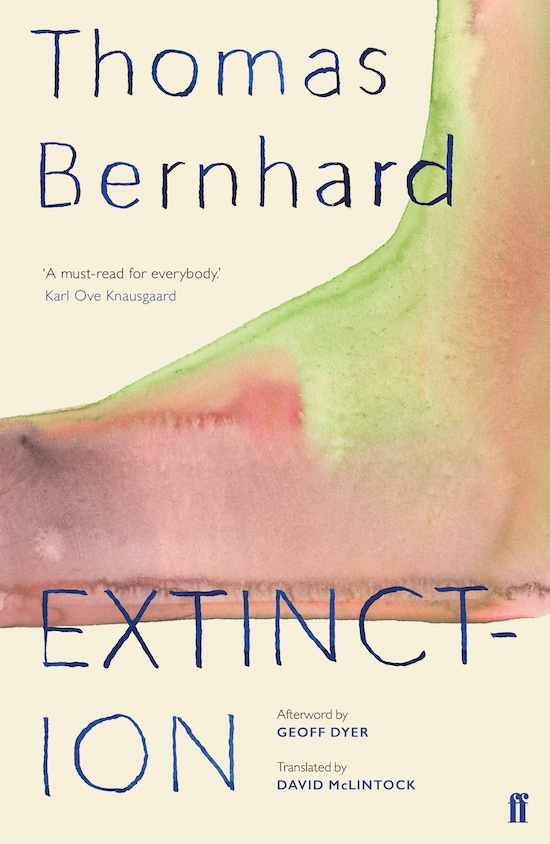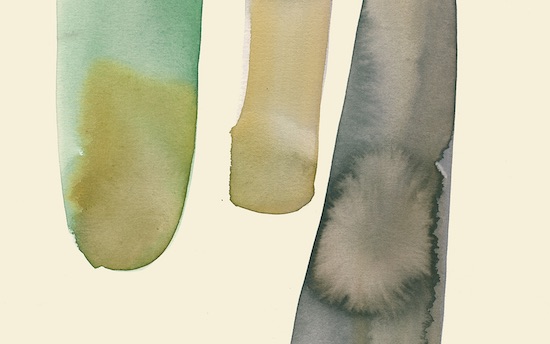The minority and the individual are crushed by the majority because they are more in tune with the times and act accordingly. Ideas that are in tune with the times are always out of tune with them, I thought, for such ideas are always ahead of the times if they are truly in tune with them. Hence whatever is in tune with the times is in reality out of tune with them.
—Extinction, Thomas Bernhard
We are living in discordant times. But, with the caveat that this may sound attractive to many readers of The Quietus, not in a good way. One of the most disturbing things about Brexit and the populist tide engulfing the country is it has appropriated the attitude and methodology of punk. Defiant anarchism, the welcoming of chaos, the demonization of the establishment: these things were once the currency of people like us. And our weapons were art, music and literature. Jon Savage recently said something chilling to me: ‘The Brexiters hate art, they hate music, and they hate books.’
So where do we turn when the knitted fabric of these things is under siege, threatened with extinction? Conspiracies point to the fact the disaster capitalists want to turn the clock back to the day before the Peterloo massacre in Manchester. Pre-universal suffrage, pre-welfare state, pre-Victorian, pre-literacy (yes, really), resolutely feudal. Remember John Major’s Classless Society? Well in another perverse subversion we are perhaps heading there in the dreams and fantasies of the ERG, albeit with a much more brutally delineated class stratification: us and them.
When the things we love are under threat we need to remind ourselves why we fell for these things in the first place and what we find there may help us survive the common existential crisis. Enter Thomas Bernhard. 30 years dead and only in print here and there for the best part of two decades, going back to the Austrian master has not helped me understand the present national nervous breakdown but it might help me survive it. After all, why not look to a writer who had the most intimate relationship with the irrational to guide us through a landscape so bereft of a divining compass as to seem cosmically unhinged? Freud said, ‘Humanity is in the highest degree irrational, so that there is no prospect of influencing it by rational arguments. Against prejudice one can do nothing.’ And so we find ourselves at an apparently nihilistic impasse but as the narrator of Extinction says, ‘We must allow ourselves to think, we must dare to think, even though we fail’.
Soundtrack To The Abyss playlist
Over the course of his 58 years, dozens of novels, polemics, plays, poetry collections and a rancorous autobiography Gathering Evidence, Thomas Bernhard achieved a reputation as a great comic misanthropist. He is the missing link between Kafka, Beckett and Karl Ove Knausgård, the Norwegian novelist who has made art out of his own life with his epic series of self-portraits collectively and knowingly titled, My Struggle. Like Edouard Louis, Ben Lerner and Rachel Cusk, Knausgard has ensured auto-fiction is the literary fiction form du jour. Arguably the most narcissistic of approaches to the literary novel, it is unsurprisingly well-tailored to a historical moment that is catastrophically narcissistic. Re-reading Bernhard’s final novel and his masterpiece, Extinction, I was struck by how suited to these times this novel, written in the 1980s towards the end of his life, is. To Bernhard narcissism was a disease. Our own national crisis is an amplification of narcissism to epidemic proportions.
The pioneers of auto-fiction and their inheritors share a common worldview, something that might be termed bewildered distaste. In Extinction, the male, middle-aged narrator is returning to a small provincial town in Upper Austria, Wolfsegg, which he describes as ‘a citadel of brainlessness’. His parents and his brother have died violent deaths in a car crash, but this is not a study in grief and mourning. The book is composed in two monolithic parts – straddling the book like colossal Orange speaker stacks belting out a tirade which is as close as literature gets to drone epiphany – each consisting of a single paragraph with no line-breaks. The narrator is also an author and, in sensibility, made of the same stuff as the author, and he is planning to write a book called Extinction about which he says, ‘the sole purpose of the account will be to extinguish what it describes, to extinguish everything that Wolfsegg means to me, everything that Wolfsegg is.’ He is planning a kind of double-erasure: the indifference he feels towards the death of his family will be recorded and reinforced in a literary construction. Total wipe out.

If all this sounds meta, it absolutely is not. There is way too much feeling and intelligence in Bernhard for it to be post-anything. However, the protagonist in Extinction understands how much of life is an act. He is returning ‘to play the role of the mourner’, rather like Edward St Aubyn in Bad News (one of the few writers who could go a few rounds with Bernhard in the ring) and the book is an exercise in endurance and fatigue. There is a lot of complaining and disgust in Bernhard. And this makes for great black humour. Take this: ‘I have always hated home knitted garments, just as I detest home cooking and anything else homemade.’ And this, which I cannot applaud enough in the Age of Instagram and the selfie: ‘I detest photographs, and it has never occurred to me to take any.’ Rigorous, perverse, contrary and absolutist on his own terms, this narrator (it is easy to forget, of course, that he both is, and is not, Bernhard) is relentlessly Taliban in his rooting out of ignorance. ‘Photography is the greatest disaster of the twentieth century’, he goes on to say, like any seasoned and weary gig-goer these days; and this in a novel that constantly returns to what Bernhard believed to be the twin evils of the 20th century: National Socialism and Catholicism. Also on his shit list are: pigeons, the German language, Belgian doctors, authority, academia, Goethe (‘the gravedigger of the German mind’) and modern architecture, which he describes as ‘degenerate’. Only ‘literature, books and the sea’, travelling, idling and thinking escape his ire. And Rome.
While much of this is an exercise in epater le bourgeois, the effect is purgative like an intellectual enema. The intelligence in Bernhard’s fiction is at once still, probing and consistent. The adjective unsparing was invented to describe him. He is the Mark E Smith of literature.
In the thirty years since Bernhard’s early death we have seen the erosion not only of institutions but of ideologies, to the point where ignorance is now seen as a virtuous scalpel (an ideology in itself), cutting through to the truth of the common man and his rights to be heard. Bernhard anticipated the infantilization of art, culture and politics with an uncanny prescience. It is now impossible to inhabit any kind of moment because we are all so hysterically distracted in the broadcasting of it. To read Bernhard and to experience his sentences is to gain intimacy with the act of compassionate intelligence on the page; the world is being processed, broken-down to an unvarnished truth. It is a reminder that we are all fundamentally alone, our political systems are inadequate and our neurotic obsessions with society and class are corrosive to our very humanity. Bernhard’s fiction is a vote for independent thinking, suspicious enquiry into everything, freedom from hypocrisy – even if that means indifference at the fate of our parents: ‘There was no danger of my yielding to sentimentality’.
There is something shamanic about Thomas Bernhard, and heroic about his hatred of Austria and its decrepit and corrupt institutions which chimes with Brexit Britain. The rhythms of his prose are almost trance-inducing: at once composed, hysterical, composed, hysterical. Repetition repetition repetition. He is a one-chord wonder, and in his assault, one of those few writers who starts to shape the way you think and interpret the world. His scepticism and his marrying of the comic and grotesque allow us to feel less disengaged and hopeless, in part because he so aware of how hopeless everything is; that in itself introduces free will (something we have all felt a deficiency of over the past two years). Bernhard’s universe is infectious. Just the other day I found myself uttering the most Bernhard of sentences: There is only one thing worse than mediocrity and that is the celebration of mediocrity.
The present mood in Britain is perhaps best described as one of universal alienation. Whichever side of the argument you are on you feel powerless. Hatred for one’s country is a kind of self-harm, a reckoning with the ancestors, betrayal and the reactionary forces that are gathering to suffocate radical art and music. Bernhard was never reconciled to Austria. He exiled himself from its literary institutions. And it makes me wonder where we’ll end up – readers, writers, publishers, people who love culture – when and if the lunatic fringe have successful censored or neutered our world.
Reading Thomas Bernhard is a reminder that sanctimony, fear, intolerance and self-interest have been the four cardinal points of nation-making and nation-breaking forever. As I find myself feeling shame and impotence about the fractured mood of the country and despair at the resurgence of English exceptionalism, I am calmed by this most European of voices. And we must find this resistance within through the creation, celebration and cultivation of art because intelligence, beauty and appreciation of the sublime are the only intelligent response to ignorance.
Extinction, by Thomas Bernhard, is published by Faber


